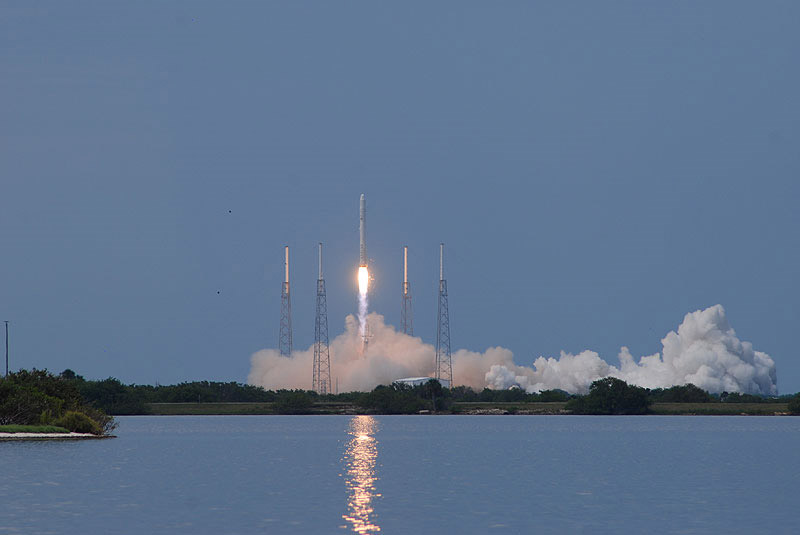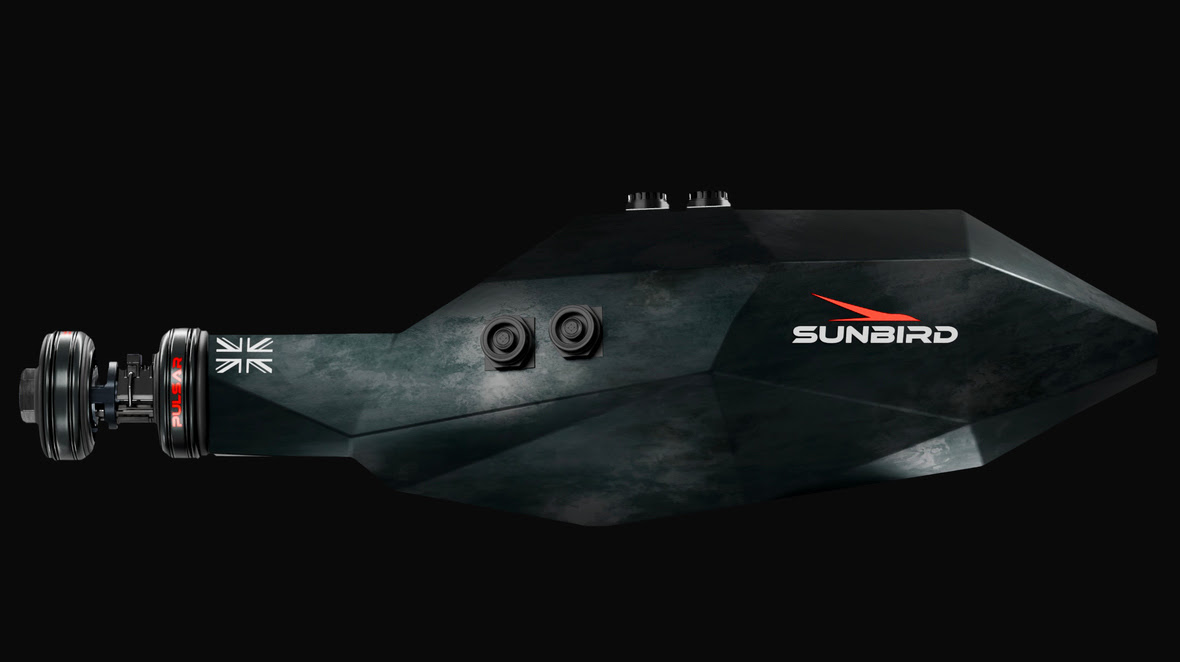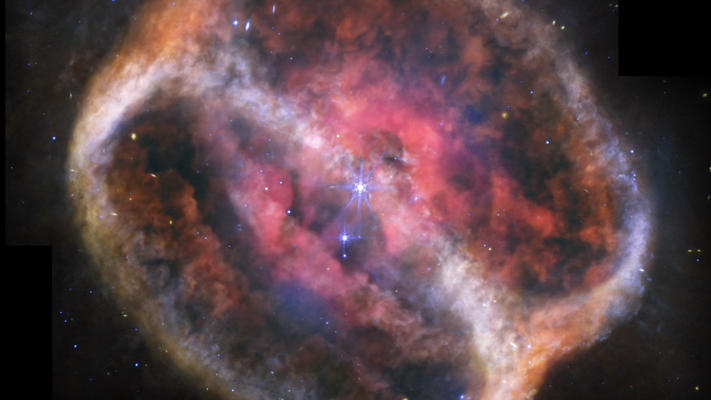New Private Rocket Soars Into Space on First Flight

This story was updated at 5:48 p.m. EDT.
The brand-new commercial Falcon 9 rocket soared into orbit from Florida on its maiden flight Friday, the first test for a new era of private vehicles that could one day send cargo — and possibly astronauts — into space.
The Falcon9 rocket, built by private company Space Exploration Technologies (SpaceX), blasted off at 2:45 p.m. EDT (1845 GMT) from its seaside launch pad at Cape Canaveral Air Force Station in Florida.
"We got our Falcon 9 rocket to orbit," said SpaceX's jubilant millionaire CEO Elon Musk, who co-founded the PayPal online payment service before launching his rocket company. "It achieved a near bull's eye."
Related: SpaceX's Falcon 9: Rocket for the Dragon
The Falcon 9 rocket traveled eastward off the pad to orbit about 155 miles (250 kilometers) above Earth. A big SpaceX party is expected tonight in Florida to celebrate the rocket's success, Musk said.
How will they celebrate?
Get the Space.com Newsletter
Breaking space news, the latest updates on rocket launches, skywatching events and more!
"I think with a lot of margaritas," said Musk, who founded the Hawthorne, Calif.-based SpaceX in 2002.
Falcon 9's first flight
The trip to orbit appeared to progress largely as expected, though a video camera attached to the Falcon 9 showed a slight roll on the ascent to space.
Musk said the roll, while not expected, had no impact on the successful launch.
An earlier launch attempt today at 1:30 p.m. EDT (1730 GMT) was aborted when a last-minute igniter glitch triggered a safety system to shut down the launch. Musk said that after analyzing the glitch, the safety parameter was reset and the rocket cleared to launch.
Before that, the launch was delayed past an initial 11 a.m.EDT (1500 GMT) target time by a blocked signal from the rocket's telemetry system, which enables the launch team to track the vehicle from afar.
After that issue was resolved, a report came from the U.S. Air Force that a boat had strayed into the safety range on the Atlantic Ocean over which the Falcon 9 rocket would fly during its trip to space. The launch had to wait until the boat was cleared before proceeding.
Finally, SpaceX recycled the launch countdown and succeeded launching on its second try, when all systems appeared to function as designed for a smooth first blastoff of the untried rocket.
"It's a huge milestone achievement for SpaceX as ac ompany, because they've invested a lot of time, a lot of money, a lot of engineering, and to get to an actual flight test is definitely an impressive achievement," said Brett Alexander, president of the Commercial Spaceflight Federation, a private industry group.
More flights ahead
Musk said SpaceX's second Falcon 9 rocket is nearly complete and could fly by the end of summer. That mission is expected to carry an actual Dragon spacecraft, not just a mockup, to demonstrate spacecraft separation, orbital maneuvers and re-entry.
The Falcon 9 rocket already has a $1.6 billion contract with NASA to haul cargo to the International Space Station, and may one day carry astronauts as well. Today's successful launch adds fuel to the hopes that the rocket will be the first non-government spaceship to carry people to orbit.
The 178-foot (54 meters) tall liquid-fueled booster flew a mockup of the company's Dragon capsule, which is planned to carry cargo, and eventually crew, to space.
This Space.com graphic shows how the Falcon 9 rocket compares with NASA's shuttles and other spacecraft.
SpaceX had hoped to recover the first stage of the rocket, which fell into the Atlantic Ocean after launch and was expected to be buoyed by parachutes on its descent. But the rocket segment broke apart as it fell toEarth.
"We are recovering parts of the first stage," Musk said. SpaceX had hoped to be able to reuse the Falcon 9 rocket's first stage, but the company's business plan does not hinge on reusability, he added.
Rise of private spaceflight
This successful trial flight will likely provide a boon to President Barack Obama's plan to shift responsibility for ferrying astronauts to the International Space Station to the commercial space sector after the space shuttles retire this year. The President proposed cancelling NASA's existing Constellation plan to build a shuttle replacement.
"If [the test launch] is successful I think it's symbolically the new age, because it's the first time to orbit by a vehicle being built entirely by a private corporation," space policy expert Roger Handberg, a political scientist at the University of Central Florida, said before the flight. "It is a game changer in that sense. It makes the commercial space stuff finally credible."
The launch could help ease doubts of some lawmakers that private space companies are up to the task.
"What people have been saying in Congress is thec ommercial sector can't do it," Handberg told SPACE.com. "I think int he larger congressional community there will be less willingness to say, 'Oh yeah, we need to keep the shuttle flying, keep Constellation going.' I think they'll be more willing to back the President."
Still some doubts
But some doubt that skeptics will be persuaded by the successful launch.
"If it's a success, I don't expect critics of the administration's plan to say anything positive," Alexander said on Thursday. "They'll just say, 'It's only a test.'"
While the achievement is significant for SpaceX, he said, the whole future of the commercial space industry is not riding on the success or failure of this one trial. SpaceX itself agreed.
"Tomorrow's launch should not be a verdict on the viability of commercial space," Musk said Thursday. "Commercial space is the only way forward," he said, because of the limited budget of governmental space programs.
Ultimately, SpaceX plans to reuse most elements of their spacecraft to cut down costs and make space affordable for more civilians to travel beyond Earth.
"Unless we can make dramatic improvements to the cost and reliability of space transport and make it closer to air transport, it will only ever be a small number of launches that take place every year at extreme expense," Musk said.
Join our Space Forums to keep talking space on the latest missions, night sky and more! And if you have a news tip, correction or comment, let us know at: community@space.com.

Clara Moskowitz is a science and space writer who joined the Space.com team in 2008 and served as Assistant Managing Editor from 2011 to 2013. Clara has a bachelor's degree in astronomy and physics from Wesleyan University, and a graduate certificate in science writing from the University of California, Santa Cruz. She covers everything from astronomy to human spaceflight and once aced a NASTAR suborbital spaceflight training program for space missions. Clara is currently Associate Editor of Scientific American. To see her latest project is, follow Clara on Twitter.









